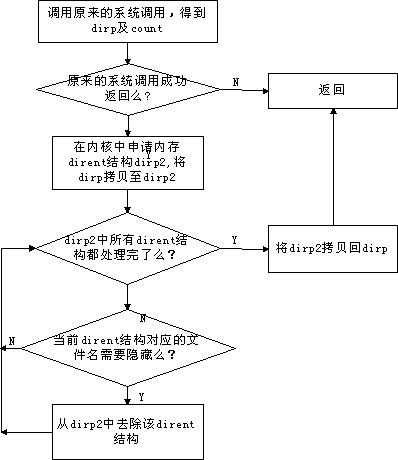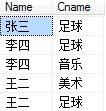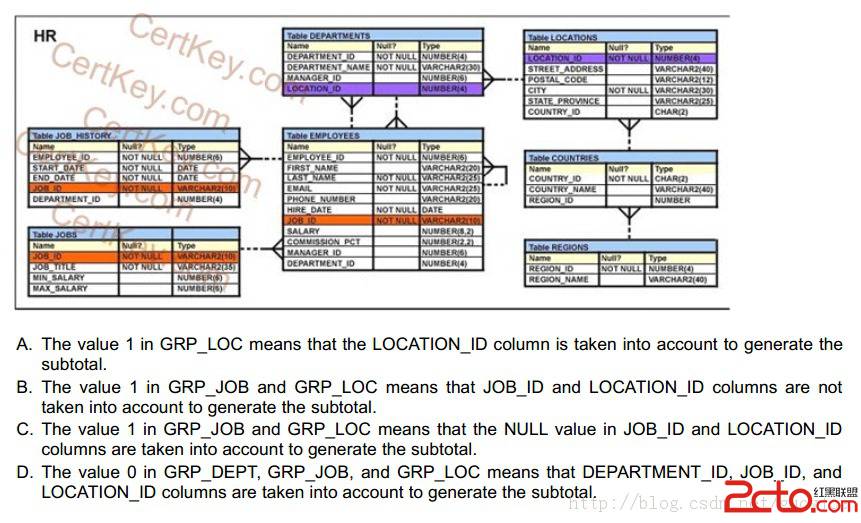怎样安装Oracle9iforHP-UX双机
系统需求:-》内存
最小256MB。
使用以下命令确认系统内存容量:
#/usr/sbin/demesg | grep “Physical:”
-》交换空间
两倍于物理内存
以下命令确认交换空间容量:
# /usr/sbin/swapinfo ?a (需要root权限)
-》磁盘容量
数据库软件需要2.5GB,种子数据库需要额外的1GB
-》临时硬盘空间
在/tmp 目录下需要最小400MB。如果在/tmp 目录下没有400MB 以上的空间,在另一个文件系统下建立一个/tmp目录,然后设置环境变量TEMP(由Oracle使用)和TMPDIR(由操作系统程序使用)使其指向这个位置。具体如下:
$ mkdir /u03/tmp
$TEMP=/u03/tmp ; export TEMP
$TMPDIR=/u03/tmp ; export TMPDIR
-》操作系统
HP-UX 版本11.0。
利用以下命令获取当前操作系统信息:
$ uname ?a
-》操作系统补丁(详细补丁要求,看oracle 的install guide)
使用以下命令确认系统上安装了哪些系统补丁:
$ /usr/sbin/swlist -l patch
使用以下命令确认系统上是否安装了特定的系统补丁:
$ /usr/sbin/swlist -l patch patch_number
使用以下命令确认系统上安装了哪些系统补丁包:
$ /usr/sbin/swlist -l bundle
-》JDK
JDK1.2.2.07以上
预安装工作:
-》确认Shell的文件大小限制
Oracle9i 缺省支持超过2GB 的文件。但是您的操作系统shell可能会强行进行文件大小限制。
使用以下命令确认您的shell是否强行进行文件大小限制:
$ ulimit ?f
将文件(块)的值乘以512 可以得到shell 的最大文件大小限制(以byte 为单位)。例如:如果文件(块)设置为2097148,可以访问的最大文件大小则为1GB。
-》更改内核参数
使用SAM配置HP 内核。
使用ipcs命令获得关于系统当前共享内存和信号量的值的列表,以及它们的ID号与所有者。
下表中的参数是运行带有一个数据库实例的Oracle9i所要求的最小值。
内核参数设置目的
KSI_ALLOC_MAX (NPROC * 8)
Defines the system wide limit of queued signal that can be allocated.
MAXDSIZ 1073741824 bytes
Refers to the maximum data segment size for 32-bit systems. Setting this value
too low may cause the processes to run out of memory.
MAXDSIZ_64 2147483648 bytes
Refers to the maximum data segment size for 64-bit systems. Setting this value
too low may cause the processes to run out of memory.
MAXSSIZ 134217728 bytes
Defines the maximum stack segment size in bytes for 32-bit systems.)
MAXSSIZ_64BIT 1073741824
Defines the maximum stack segment size in bytes for 64-bit systems.
MAXSWAPCHUNKS (available memory)/2
Defines the maximum number of swap chunks where SWCHUNK is the swap
chunk size (1 KB blocks). SWCHUNK is 2048 by default.
MAXUPRC (NPROC + 2)
Defines maximum number of user processes.
MSGMAP (NPROC + 2)
Defines the maximum number of message map entries.
MSGMNI NPROC
Defines the number of message queue identifiers.
MSGSEG (NPROC * 4)
Defines the number of message headers.
MSGTQL NPROC
Defines the maximum number of pending timeouts
NCALLOUT (NPROC + 16)
Defines the maximum number of pending timeouts.
NCSIZE ((8 * NPROC +2048)+VX_NCSIZE)
Defines the Directory Name Lookup Cache (DNLC) space needed for inodes.
VX_NCSIZE is by default 1024.
NFILE (15 * NPROC+2048)
Defines the maximum number of open files.
NFLOCKS NPROC
Defines the maximum number of files locks available on the system.
NINODE (8 * NPROC + 2048)
Defines the maximum number of file locks.
NKTHREAD (((NPROC * 7) / 4)+16)
Defines the maximum number of kernel threads supported by the system.
NPROC 4096
Defines the maximum number of processes.
SEMMAP ((NPROC * 2) + 2)
Defines the maximum number of semaphore map entries.
SEMMNI (NPROC * 2)
Defines the maximum number of semaphore sets in the entire system.
SEMMNS (NPROC * 2) * 2
Sets the number of semaphores in the system. The default value of SEMMNS
is 128, which is, in most cases, too low for Oracle9i software.
SEMMNU (NPROC - 4)
Defines the number of semaphore undo structures.
SEMVMX 32768
Defines the maximum value of a semaphore.
SHMMAX Available physical memory
Defines the maximum allowable size of one shared memory segment.
The SHMMAX setting should be large enough to hold the entire SGA in one
shared memory segment. A low setting can cause creation of multiple shared
memory segments which may lead to performance degradation.
SHMMNI 512
Defines the maximum number of shared memory segments in the entire
system.
SHMSEG 32
Defines the maximum number of shared memory segments one process can
attach.
VPS_CEILING 64
Defines the maximum System-Selected Page Size in kilobytes.
-》root 用户设置任务
用SAM创建数据库管理员组。
》OSDBA组,典型的为dba
》可选的OSOPER组,典型的为oper
》可选的ORAINVENTORY组,典型的为oinstall
授予OSDBA组RTSCHED,RTPRIO和MLOCK特权,作为root用户,按如下步骤操作:
》创建/etc/privgroup文件(如果它不存在),添加下面的一行到文件里:
dba MLOCK RTSCHED RTPRIO
》使用下面的命令格式指派这些特权:
#setpriv groupname privileges
在上述命令中,groupname 是接受特权的组的名字,privileges是将要授予给组的特权。
例如,要为OSDBA组(称为dba)授予特权,运行如下命令:
#setprivgrp dba MLOCK RTSCHED RTPRIO
使用SAM 创建oracle和APACHE用户。
》oracle 账户应具有以下特性:
primary 组为ORAINVENTORY 组。
secondary 组为OSDBA组。
账户仅用于安装与升级Oracle软件。
》APACHE账户应具有如下特性:
primary 组为ORAINVENTORY 组。
secondary组为一个只包含APACHE一个成员的组。
账户具有最小特权。
创建Oracle软件与数据库的挂载点。
》基本安装至少需要两个挂载点:一个用于软件,另一个(至少一个)用于数据库文件。
设置系统环境变量。
》创建本地bin 目录(如果没有的话),例如/usr/local/bin 或/opt/bin.。设置并且确认这个目录在每个用户的PATH声明中,并且用户对这个目录有执行的权限。
设置.profile的Oracle环境变量,如下:
???????????????????????????????????????
# Oracle Environment
ORACLE_HOME=/opt/oracle/product/9.0.1; export ORACLE_HOME
ORACLE_SID=dia2; export ORACLE_SID
ORACLE_TERM=xterm; export ORACLE_TERM
TNS_ADMIN=/export/home/oracle/config/9.0.1; export TNS_ADMIN
#NLS_LANG="SIMPLIFIED CHINESE_CHINA.ZHS16CGB231280"
NLS_LANG="SIMPLIFIED CHINESE_CHINA.ZHS16GBK"
#NLS_LANG=AMERICAN_AMERICA.UTF8
#NLS_LANG="ZHS16GBK"
export NLS_LANG
ORA_NLS33=$oracle_home/ocommon/nls/admin/data; export ORA_NLS33
LD_LIBRARY_PATH=$ORACLE_HOME/lib:/lib:/usr/lib:$ORACLE_HOME/rdbms/lib
SHLIB_PATH=ORACLE_HOME/lib32:$ORACLE_HOME /rdb





